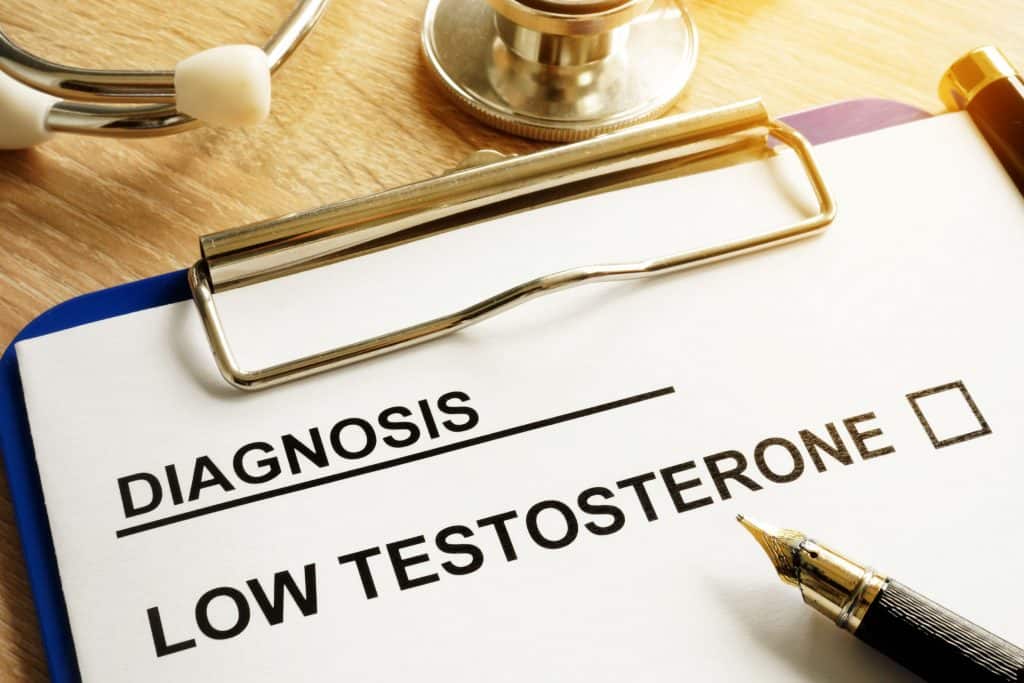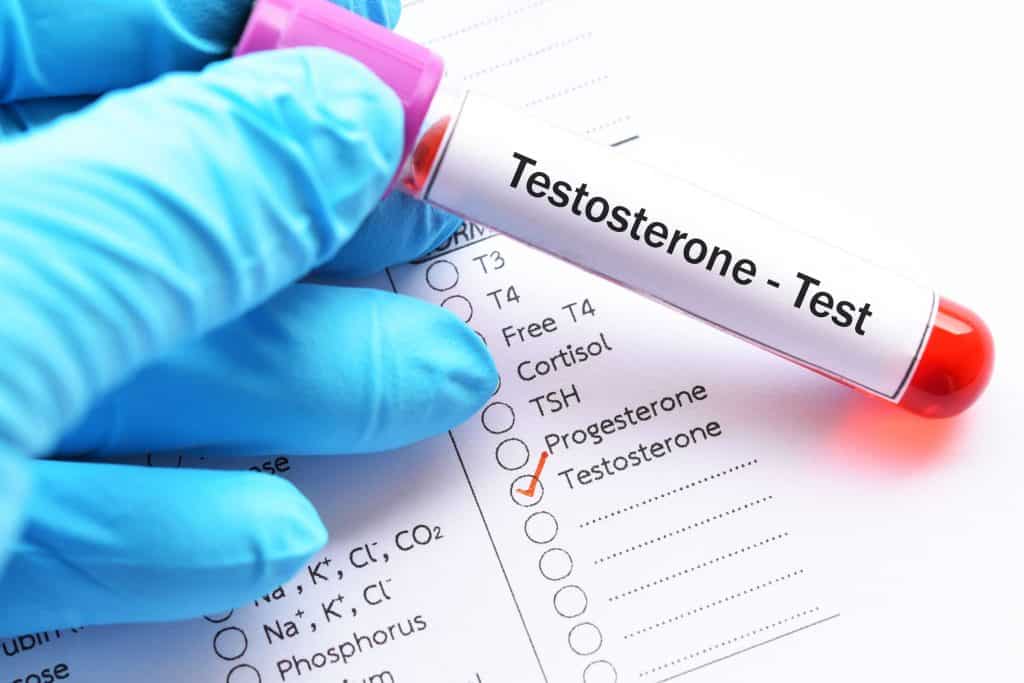What is TRT? How to Get it, Uses, Risks, Costs – A Guide
Posted by Prescription Hope - See Editorial Guidelines (Last Updated On: Tue Apr 25 2023)
TRT is the acronym used to refer to testosterone replacement therapy, which treats low testosterone levels. Testosterone is an essential hormone, especially for men’s health.
Many people have questions surround TRT and its uses. So, in this article, we will discuss what you need to know about TRT, the cost, and why someone might need testosterone replacement. First, here is a quick summary to give you an answer, then we’ll cover the details.
What is TRT? Testosterone replacement therapy (TRT) is used to treat low testosterone levels in men and sometimes women. Low testosterone levels can cause decreased sex drive, erectile dysfunction, loss of bone and muscle mass, trouble sleeping, and unusual weight gain. TRT can help individuals increase their sex drive (libido) and have improved energy levels, improving their overall quality of life.
Now that you have the quick answer, here is everything you need to know about TRT.
What is Testosterone?

Testosterone is an essential hormone that belongs to a class of male hormones called androgens. Though this hormone is most known for playing a part in men, a woman’s ovaries will produce testosterone but in very small quantities.
In men, testosterone is produced mainly in the testicles. This hormone is responsible for helping maintain a man’s bone and muscle density, fat distribution, muscle mass, facial and body hair, red blood cell production, sex drive, and sperm production.
Why Does Someone Need TRT?
If men do not produce enough testosterone naturally, then they will need TRT. Low testosterone (hypogonadism) in men can lead to decreased sex drive, erectile dysfunction, low sperm count, and swollen breast tissue.
As men age, their testosterone naturally begins to decrease. For example, it is estimated that after the age of 40, the amount of testosterone circulating through their body decreases by about 1.6% every year. Roughly 40% of men are considered to have hypogonadism by the time they are 45 years old.
It is believed that the number of men experiencing hypogonadism has been increasing over the years. This may partly be due to the increase in the life expectancy of men, causing more men to reach beyond their 60’s. So, more men see the effects and symptoms of low testosterone related to aging.
If chronic low testosterone is not treated, then the risk of osteoporosis, mood swings, reduced energy, and testicular shrinkage increases. Therefore, those facing this problem may look to testosterone replacement therapy to give them a better quality of life.
Symptoms of Low Testosterone
Signs and symptoms of low testosterone include:
- Decreased sex drive
- Erectile dysfunction
- Fatigue
- Reduced muscle mass
- Loss of strength
- Irritability
- Depression
- Loss of body hair
- Increased body fat
- Enlarged or swollen breast tissue
- Trouble concentrating
What Causes Low Testosterone?
Many factors can contribute to low testosterone levels in men. Certain conditions that individuals are born with can often be one factor. These conditions may include Klinefelter syndrome, Noonan syndrome, and ambiguous genitalia.
You may also require TRT due to these factors that can cause hypogonadism:
- Injury to the testicles
- Removal of testicles due to cancer
- Chemotherapy or radiation
- Pituitary gland disease
- Infections
- Autoimmune diseases
- HIV/AIDS
- Alcoholism
- Taking certain medications (i.e. opioids)
- Excess estrogen
How Do You Get TRT?

Testosterone replacement is often associated with steroids because some individuals abuse the use of TRT beyond medical reasons. Though TRT and steroids have very similar ingredients, there is a significant difference, as TRT is medically prescribed and supervised.
So, the first step to getting testosterone replacement is to talk to your doctor about your symptoms. If you have started to feel tired or fatigued for no logical explanation, then this could be a symptom that you bring up to your doctor.
Based on what your specific symptoms are, your doctor should order blood work to be done. It is important that you consult a doctor that specializes in TRT and hormonal deficiencies.
Your doctor will then write a prescription for you for a specific TRT medication. Medications may include Methitest, Virilon, Androgel, and others. TRT can come in multiple different forms, and the type prescribed will depend on your specific needs and insurance coverage. The forms include gels, injection, patches, and gum-and-cheek.
After receiving your prescription for a specific TRT med, you can then go to the pharmacy to pick it up.
There are over-the-counter testosterone boosters that are considered supplements. Test booster supplements make positive claims, but there is little evidence to back up their claims. Since they are supplements, they do not go through the FDA approval process. Therefore, the over-the-counter testosterone supplements you see are often not worth the money and do not produce the results one needs.
Costs
The costs of TRT will vary depending on the patient’s needs and insurance plans. Getting TRT medication is relatively cheap, for the most part. The majority of what you spend on TRT should be going to the doctors and the clinic that is overseeing your treatment. Having a doctor that you can reach out to and will monitor your treatment plan carefully is essential.
However, many patients just want to get their TRT medication and be done, which is just personal preference. You can get your TRT medication at Prescription Hope for just $60.00 a month through Prescription Hope’s medication access service .
Is There Risks Associated with TRT?
As with any medication, side effects are possible with TRT. The most common side effects men may experience while on TRT include acne, breathing disruptions during sleep, swelling of breasts, and swelling of ankles.
TRT also has a chance of increasing one’s red blood cell count. An increased red blood cell count can put one at risk of heart attack or stroke. Therefore, men that are on TRT long-term are at a higher risk of cardiovascular problems.
Some doctors may also be skeptical of prescribing TRT to men that already have an increased risk of prostate cancer. There has not been conclusive evidence suggesting that testosterone replacement causes prostate cancer, but there has been concern about it.
All in all, patients and doctors must weigh the benefits against the risks to determine if TRT is right for you.
Conclusion
Ensuring that the hormones in your body are regulated and at their appropriate levels is crucial for maintaining a quality life. So, if you believe that one of your hormones, such as testosterone, is not at the right level, consult your doctor.
If you are struggling to afford the medication you need, then Prescription Hope can help save you money. Our team works directly with pharmaceutical manufacturers to provide patients with the prescription drugs they need at the set, affordable cost of $60.00 a month through Prescription Hope’s medication access service for each medication. Enroll with us and start saving money.
ENROLL



